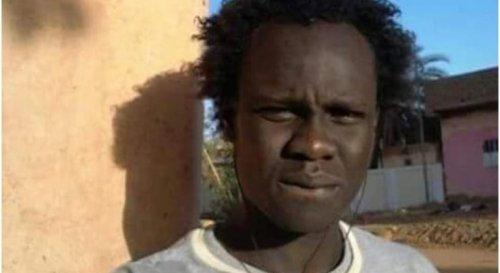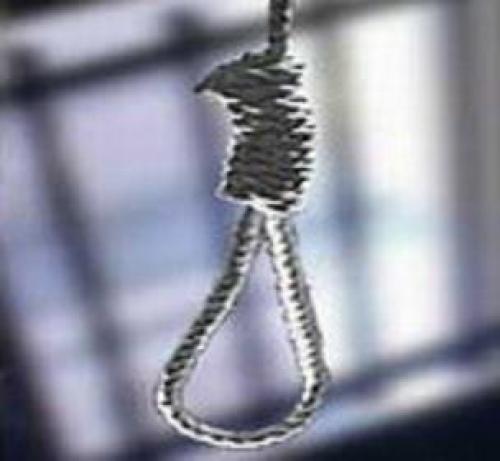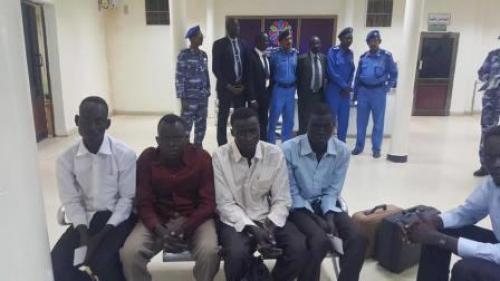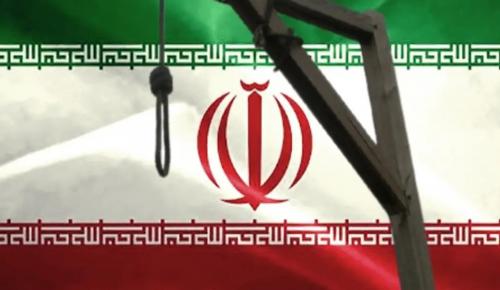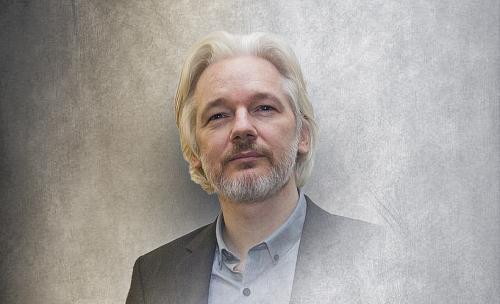situation:The 1991 Penal Code based on Sharia law prescribes both the death penalty and corporal punishment.
The crimes punishable by death are murder, terrorism, armed robbery, rape, drug trafficking, weapons possession and smuggling, treason, acts which may endanger the independence or unity of the state, waging war against the state, apostasy and prostitution.
Retributive crimes (homicide and crimes against any person’s physical integrity) allow for the family of the victim to choose between retribution and blood money. Those considered
Hudud (crimes against God) are adultery (Zina), use of alcohol, apostasy, defamation regarding chastity, armed robbery and theft of capital.
In January 2014, Sudan’s parliament endorsed a human trafficking act that allows to sentence human traffickers with the death penalty.
Article 36 of 2005 Constitution of Sudan, establishes that the death penalty can be applied to minors under the age of 18 in cases of retribution or
Hudud despite the fact that in January 2010, Sudan approved the Child Act of 2010, rising the age at which an offender can face capital punishment from 15 to 18.
The country experienced a 21-year civil war between the mainly Muslim north and the Animist and Christian south. The conflict is said to have caused the death of 1.5 million to 2 million people. After two years of negotiation the government and rebels signed a comprehensive peace deal in January 2005. Under the terms of the 2005 Comprehensive Peace Agreement (CPA), the South was granted regional autonomy along with guaranteed representation in a national power-sharing government. The agreement also provided for a referendum in the south on independence in 2011, in which 99% of southern Sudanese voted to split from Sudan.
The Republic of South Sudan gained independence from Sudan on 9 July 2011, following the January referendum. But while the government and southern rebels inched closer to peace, fighting broke out in the western region of Darfur in early 2003 when rebels seeking greater autonomy began an insurrection. More than 1.5 million people have fled their homes and tens of thousands of people have been killed. Pro-government Arab militias are accused of carrying out a campaign of ethnic cleansing against non-Arab groups in the region.
In 2005, the Security Council handed over responsibility for judging crimes against humanity committed in Darfur to the International Criminal Court (ICC) in The Hague. On 4 March 2009, the ICC issued an arrest warrant for President Omar Al Bashir for war crimes and crimes against humanity for the massacres in Darfur. The accusation of genocide was dismissed. A spokesperson for the ICC, Laurence Blairon, detailed that the arrest warrant regarded five charges of crimes against humanity and two for war crimes, including homicide, extermination, forced migration, torture and rape.
Death penalty for blasphemy and apostasyUnder Article 3 of the 1991 Sudanese Penal Code preamble, all law in the country is based on “Islamic Sharia as the main source for the law.”
Under Sharia law as practised in Sudan, a Muslim woman is not permitted to marry a non-Muslim man, and any such marriage is considered adultery. The penalty for adultery under Article 146 of the Penal Code is 100 lashes where the offender is not married; execution by stoning when the offender is married meanwhile the male non-married offender may be punished, in addition to whipping, with expatriation for one year". Artcle 126 provides for the death penalty for any person found guilty of apostasy, a crime that is committed by any Muslim who advocates for the renunciation of the creed of Islam or publicly renounces his or her faith. The same article provides for the death penalty to be withdrawn if the defendant “repents” and “recants apostasy” before execution.
In February 2015, the National Assembly increased penalties for blasphemy under article 125 of the Criminal Code. Per the amended article, blasphemy is extended to include public criticism of the Prophet Mohamed, his household, his friends or Abu Bakr, Omer, Osman or Ali in particular, and his wife Aisha.
The “war on terror” In June 2008, under Sudan’s 2001 Anti-Terrorism Law, the Government established special courts in Omdurman and Khartoum to try Darfur “rebels” accused of participating in the Justice and Equality Movement (JEM) 10 May attacks on the capital’s twin city of Omdurman that killed more than 222 people. More than 100 JEM rebels received the death penalty for the attacks. However, President Omar al-Bashir later remitted many of the sentences.
In November 2011, JEM joined the rebel Sudan Revolutionary Front (SRF), an alliance between Sudanese factions opposed to the government led by President Omar al-Bashir. Besides the JEM, the alliance brings together the two other major rebel groups in Darfur, the Sudan Liberation Movement/Army, with the rebels of the Sudan People’s Liberation Movement-North (SPLM-N) in Southern Kordofan. In 2013, the JEM, led by Bakhit Abdul Karim (Dabjo), signed a peace agreement with the Khartoum government. Shortly after the agreement, the group handed in its weapons to the government and in return the Sudanese President, Omar Hassan al-Bashir, pardoned members of the group. However, the presidential pardon did not include South Sudanese nationals. The government considered them foreign fighters and brought them to trial for bearing arms against Sudan.
The United Nations voiced concern over the trials that sentenced to death alleged Darfur rebels for the attacks on the capital and urged Khartoum to abolish capital punishment: “it would appear” that the accused were given access to lawyers only after trials began, and that confessions were extracted while they were held incommunicado and without legal advice.
On 16 March 2015, President Omar al-Bashir issued a decree pardoning five convicts from the Justice and Equality Movement (JEM) who belong to the faction which signed a peace agreement with Khartoum led by Bakheit Abdul-Karim Dabago. The JEM prisoners were sentenced to death for participating in an attack on Sudan twin capital of Omdurman in 2008 before the split in the movement. The five pardoned convicts include Hamid Hussein Hamid, Ahmed Mohamed Osman Hassan Abu, al-Sadiq Adam Abdullah, Mohammed Jibril Abdel-Mawla.
On 22 September 2015, President Omar Al Bashir announced a general amnesty for all members of the Darfur armed movements, on the condition that the leaders of those movements participate in the National Dialogue, launched in Khartoum in October.
In October 2016, President Omar Al Bashir has issued a decision to drop the remaining sentences against the members of the Sudan People's Liberation Movement-North (SPLM-N) who were convicted for their part in clashes with government forces in Ed Damazin in 2011.
A member the defence counsel, El Tijani Hassan, told Radio Dabanga that the decision includes 64 of the convicts, 17 of them sentenced to death in absentia, including by the head of the SPLM-N, Malik Aggar, and the Secretary General Yasser Arman. They also include Munnllah Hussein Huda, who was sentenced to death and jailed in Port Sudan.
El Tijani Hassan pointed that those who will be released are currently being held at El Huda prison in Omdurman, as well as Medani and Port Sudan prisons. He attributed the decision to pardon the sentenced to the considerable efforts made by the native administration in the Blue Nile and government's goodwill towards armed movements after the outcomes of the national dialogue. It has not been announced when those still in custody will be released.
In 2016, Sudan carried out 2 executions and imposed at least 43 new death sentences. In April 2016, an anti-terrorism court in Khartoum sentenced 22 South Sudanese nationals to death for terrorism.
In 2015 executions were at least 4 and 23 in 2014. Sudan hanged at least 21 people in 2013. The last data on people on death row refers to the end of 2014, when there were at least 215 people on death row.
United NationsIn May 2011, the UN Human Rights Council under the Universal Periodic Review recommended that Sudan adhere to the Second Optional Protocol to the ICCPR aimed at abolishing the death penalty; to move towards abolition of the death penalty; to establish a moratorium on executions; to commute death sentences to appropriate alternative sanctions; to respect international standards regarding the death penalty, particularly to ensure that it will only be applied to the most severe crimes and to individuals who are more than 18 years of age at the time of the act and to prohibit executions of minors pursuant to the Children’s Act of 2010. Sudan accepted the recommendation to prohibit the application of death penalty on young people under age 18, but rejected the others, stating that: “In compliance with Sudan’s commitment under the ICCPR the death penalty in Sudanese laws is confined to the most serious crimes. In murder cases there is room for pardoning by the relatives of the deceased and in such cases the death penalty will not be imposed.” Sudan also rejected those recommendations calling for the abolition of corporal punishment from the penal code.
On 4 May 2016, Sudan was reviewed under the Universal Periodic Review (UPR) at the UN Human Rights Council. It noted, but did not support, recommendations to establish an official moratorium on executions, abolish the death penalty and ratify the Second Optional Protocol to the International Covenant on Civil and Political Rights (ICCPR), aiming at the abolition of the death penalty.
On December 19, 2016, Sudan voted against the Resolution on a Moratorium on the Use of the Death Penalty at the UN General Assembly.


